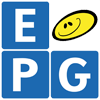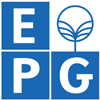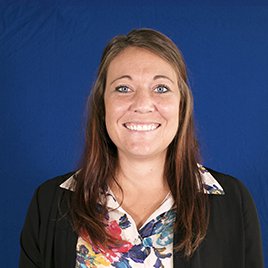Early Years

At EPG, the Early Years Foundation Stage (EYFS) is a play-based adapted curriculum for children from 9 months to 5.5 years. This allows children to explore and learn in an environment that is secure and safe, yet challenging. We understand that this period in a child's life is an important developmental stage when they discover themselves and the world around them. Leadership and teaching teams in branches are dedicated and passionate professionals who embody all the values we teach children.
Curriculum
Policies

EY Online

EY Online Teachers
EPG Experience
Calendar
About EPG Primary School

EPG continues to fulfill its dynamic mission in providing quality Primary & Secondary school education in Kuwait and in building the skills and knowledge to ensure our pupils can be the best they can be.
EPG’s Schools’ continued growth and evolution in the provision of education in Kuwait, is exemplified again this academic year, 2020/21, by the expansion of the new EPG School-Sabah Salem, to provide KS1 and KS2 classes up to Year 3, the introduction of Lower Secondary School, Years 7 and 8 to EPG School-Salwa and continued expansion of EPG Primary School - Salmiya.
At all stages in EPG Schools, pupils study mandatory subjects under the Kuwait Ministry of Education Curriculum alongside the English National Curriculum. In doing so we value and celebrate the traditions and customs of Kuwait and introduce our pupils to a worldwide view and consciousness of other nations.
EPG Schools - Sabah Salem
Our new school, EPG School-Sabah Salem, is in an excellent location with bright, spacious classrooms. In line with EPG’s educational provision at EPG Schools in Salwa and Salmiya, Sabah Salem has well-qualified teachers who are resourced to provide the delivery of high quality teaching and learning in a warm and welcoming educational environment. Class teachers guide their pupils through their studies in Foundation Stage 2 and KS1, Years 1, 2 and 3. Teachers deliver the English National Curriculum and the required subjects of the Kuwait Ministry of Education Curriculum.
EPG School - Salwa
EPG School-Salwa has expanded to provide for KS3, Lower Secondary School, Years 7 and 8. Year 6 pupils from EPG and outside can now continue their education into EPG Lower Secondary School. EPG’s growing Secondary school will be housed in a new custom built building, in September 2020, adapted to provide the ideal social and educational environment for the young adults that will occupy it. The addition of Year 9 in 2021 will complete EPGs KS3, Lower Secondary School provision, in preparation for KS4 in August/September 2022. Pupils will graduate from Primary school to EPG Lower Secondary School where they will continue to work on an English International Curriculum with a view to completing their first official UK accredited exams in KS4. The IGCSE, International General Certificate of Secondary Education, taken in Year 11, will provide pupils with a qualification and foundation that will allow them to pursue many options for further education internationally and within Kuwait.
EPG School - Salmiya
EPG School-Salmiya, has continued to expand and provide quality education from KS1 to KS2.
We are constantly updating and reviewing our resources and facilities to ensure a consistently high quality of teaching and learning in all our schools. As a leading provider of education in Kuwait, EPG values and welcomes the partnership between the school and the parents that entrust their children to us. At EPG we know that each child is unique. Knowing this, we celebrate and enhance our pupil’s strengths and we support each individual in their challenges and goals.. At EPG, our student centered approach allows for each child to be encouraged and guided at every opportunity to be the best they can be.
Curriculum
Policies

Distance Learning

Our Team
EPG Experience
Calendar
About EPG Secondary School

EPG continues to fulfill its dynamic mission in providing quality Primary & Secondary school education in Kuwait and in building the skills and knowledge to ensure our pupils can be the best they can be.
EPG’s Schools’ continued growth and evolution in the provision of education in Kuwait, is exemplified again this academic year, 2020/21, by the expansion of the new EPG School-Sabah Salem, to provide KS1 and KS2 classes up to Year 3, the introduction of Lower Secondary School, Years 7 and 8 to EPG School-Salwa and continued expansion of EPG Primary School - Salmiya.
At all stages in EPG Schools, pupils study mandatory subjects under the Kuwait Ministry of Education Curriculum alongside the English National Curriculum. In doing so we value and celebrate the traditions and customs of Kuwait and introduce our pupils to a worldwide view and consciousness of other nations.
EPG Schools - Sabah Salem
Our new school, EPG School-Sabah Salem, is in an excellent location with bright, spacious classrooms. In line with EPG’s educational provision at EPG Schools in Salwa and Salmiya, Sabah Salem has well-qualified teachers who are resourced to provide the delivery of high quality teaching and learning in a warm and welcoming educational environment. Class teachers guide their pupils through their studies in Foundation Stage 2 and KS1, Years 1, 2 and 3. Teachers deliver the English National Curriculum and the required subjects of the Kuwait Ministry of Education Curriculum.
EPG School - Salwa
EPG School-Salwa has expanded to provide for KS3, Lower Secondary School, Years 7 and 8. Year 6 pupils from EPG and outside can now continue their education into EPG Lower Secondary School. EPG’s growing Secondary school will be housed in a new custom built building, in September 2020, adapted to provide the ideal social and educational environment for the young adults that will occupy it. The addition of Year 9 in 2021 will complete EPGs KS3, Lower Secondary School provision, in preparation for KS4 in August/September 2022. Pupils will graduate from Primary school to EPG Lower Secondary School where they will continue to work on an English International Curriculum with a view to completing their first official UK accredited exams in KS4. The IGCSE, International General Certificate of Secondary Education, taken in Year 11, will provide pupils with a qualification and foundation that will allow them to pursue many options for further education internationally and within Kuwait.
EPG School - Salmiya
EPG School-Salmiya, has continued to expand and provide quality education from KS1 to KS2.
We are constantly updating and reviewing our resources and facilities to ensure a consistently high quality of teaching and learning in all our schools. As a leading provider of education in Kuwait, EPG values and welcomes the partnership between the school and the parents that entrust their children to us. At EPG we know that each child is unique. Knowing this, we celebrate and enhance our pupil’s strengths and we support each individual in their challenges and goals.. At EPG, our student centered approach allows for each child to be encouraged and guided at every opportunity to be the best they can be.
Curriculum
Policies

Distance Learning





















